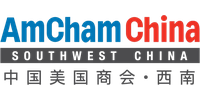Training Summary
*Please note that this training will be conducted in Chinese.
*The online training @Teams link will be sent to applicants one week before the course starts.
Background
Cross-departmental collaboration is the foundation for the success of enterprises, not only can it enhance the overall competitiveness, but also improve the profit of enterprises, thus achieving greater growth. Successful cross-departmental collaboration can help enterprises achieve goals more effectively, improve the overall technical level, expand the scale, and reduce cost. Cross-departmental collaboration can also reduce the cost of human resources, as it can improve the efficiency of human resources, increase work output, and bring greater economic benefits to enterprises.
Objects
Cross-departmental collaboration project team, functional department, support department, middle and back office department, external communication and cooperation department
Benefits
- Enable participants to understand the sense of collaboration and learn the capabilities of conflict management
- Understand the causes of conflict, find out the potential problems during departmental cooperation, seek ways to resolve the conflict and successfully reach the goal
- Recognize that conflict management is the foundation of teamwork and a must for continuous training, and learn cross-sectoral cooperation skills to get twice the result with half the effort
- Recognize the importance of attitude at work and adjust a positive work mindset to be fully engaged in work
- Learn the tools of time management to improve work efficiency and achieve win-win development
Outline
Introduction: the importance of cross-departmental collaboration
Ⅰ Understand the "department wall"
- Why department walls exist
- The domino effect, how one affects many
- The principle of department walls
Ⅱ Rational thinking of conflict in the Internet era
- What is conflict? Is conflict totally harmful?
- Causes of conflict
- Rational and emotional thinking
- Establishment of resolution thinking
- The four-step method of conflict resolution
Ⅲ Conflict resolution in conflict management
- The focus and connotation of people-oriented communication
- Resolution techniques of interpersonal style conflict
- Third-party arbitration to resolve conflicts
- High emotional intelligence to resolve conflicts
Ⅳ Conflict prevention in conflict management
- Barriers to cross-departmental communication
- The direction of questioning (up pile, down cut, panning)
- The way of questioning (leading, pushing)
- 3 levels of listening (I am, I am listening, I am listening attentively)
- 11 good habits of active listening
- 3 taboos of listening
- PDCA cycle of work
Ⅴ Work actively to resolve conflicts with a professional mentality
- The iceberg model of professionalism
- Establish the correct sense of professionalism
- Case study: How do you handle the work without working overtime?



